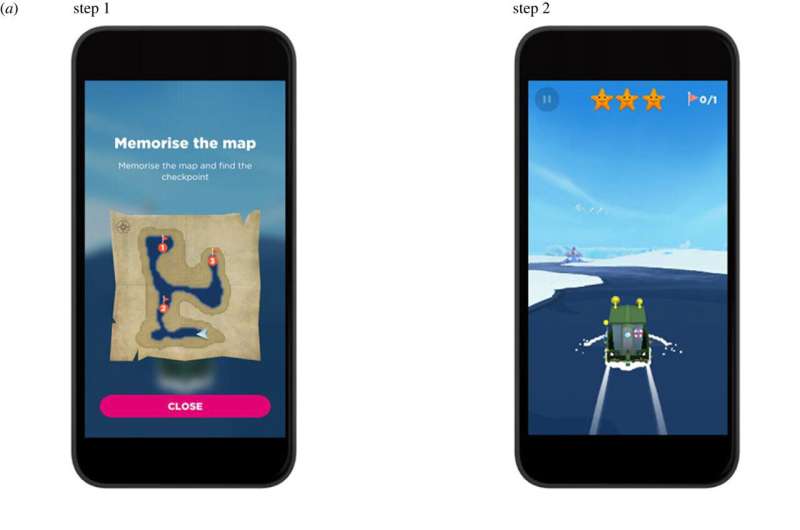This article has been reviewed according to Science X's editorial process and policies. Editors have highlighted the following attributes while ensuring the content's credibility:
fact-checked
peer-reviewed publication
trusted source
proofread
Left-handers don't have better spatial skills, gaming research shows

It's been debated for decades, but now researchers at the University of York and University College London have suggested that left-handedness is not linked to better spatial skills.
By asking participants to download and play a video game that captured user information and tracked navigational challenges, researchers were able to measure demographic data—including hand preference—and activity from more than 420,000 international participants, across 41 different countries. They found that left-handers were neither better nor worse than right-handers at the tasks, clarifying a long-running debate about the links between handedness and spatial skills.
The brain has two hemispheres, controlling the opposite sides of the body; so in right-handers, the left hemisphere controls the dominant right hand, whereas the situation is reversed in left-handers. Many cognitive abilities are also dominated by one of the two brain hemispheres, while right and left-handers also show different patterns of lateralization—the specialization of a particular area.
As a result, many debates about cognitive differences related to handedness are also debates about the effects of brain lateralization on cognitive abilities.
Spatial cognition, the ability of humans to perceive and navigate our physical environment, is a fundamental set of brain-based skills. It is also not clearly dominated by either hemisphere, leaving scientists unclear as to whether it has any link to handedness.
Some inconclusive research has suggested that left-handers might be better at navigating virtual and real games, and left-handed athletes are known to be over-represented in professional sports, requiring rapid and accurate responses.
However, it's been a tricky issue to research, partly because handedness prevalence changes from culture to culture, and partly because testing for handedness effects requires a large number of participants. Using the video game Sea Hero Quest, the researchers were able to overcome both challenges.
Dr. Pablo Fernandez-Velasco, a researcher at the Department of Philosophy at the University of York, who co-led the study, said, "Recruiting participants in our study through a video game is a new approach, which allowed us to standardize a test across a very large sample. We found no reliable evidence for any difference in spatial ability between left and right-handers, across all countries."
"Moreover, that large data sample allowed us to confirm that factors like age, gender, and education don't play a part in the relationship between hand preference and spatial ability."
The users in the study downloaded and played Sea Hero Quest, a free app that measures spatial navigational ability and was originally designed to contribute to research on dementia. It asks participants to view a map featuring both their current position and their goal locations, and they are then asked to navigate a boat as quickly as possible toward goal locations in a specified order. Only participants reaching level 11 of the game were included.
Informed in-app consent was obtained from all participants. Left-handers in the sample made up an average of 9.94% of the participants, with more males using their left hand compared with women, similar to what had previously been found in the general population.
Dr. Fernandez-Velasco adds, "We're still finding out so much about cognition, and although we've shown that large-scale spatial skills aren't affected by left and right-handedness, perhaps further research will find some differences based on handedness when it comes to navigation styles, or to preferences for different types of environments"
The research is published in the journal Proceedings of the Royal Society B: Biological Sciences.
More information: P. Fernandez-Velasco et al, No link between handedness and spatial navigation: evidence from over 400 000 participants in 41 countries, Proceedings of the Royal Society B: Biological Sciences (2023). DOI: 10.1098/rspb.2023.1514



















